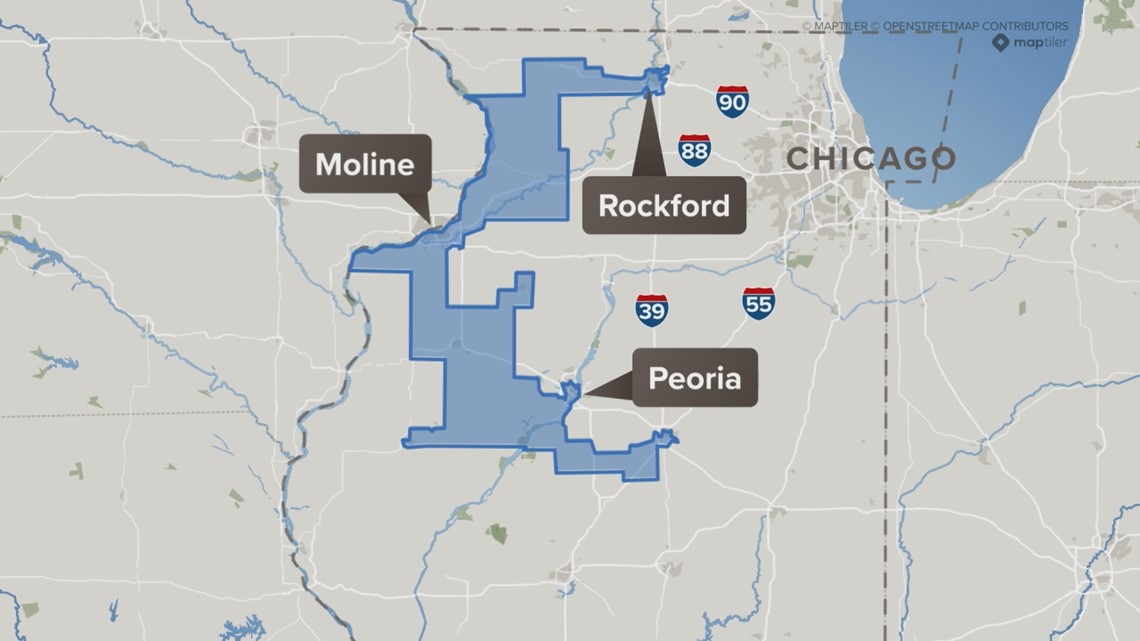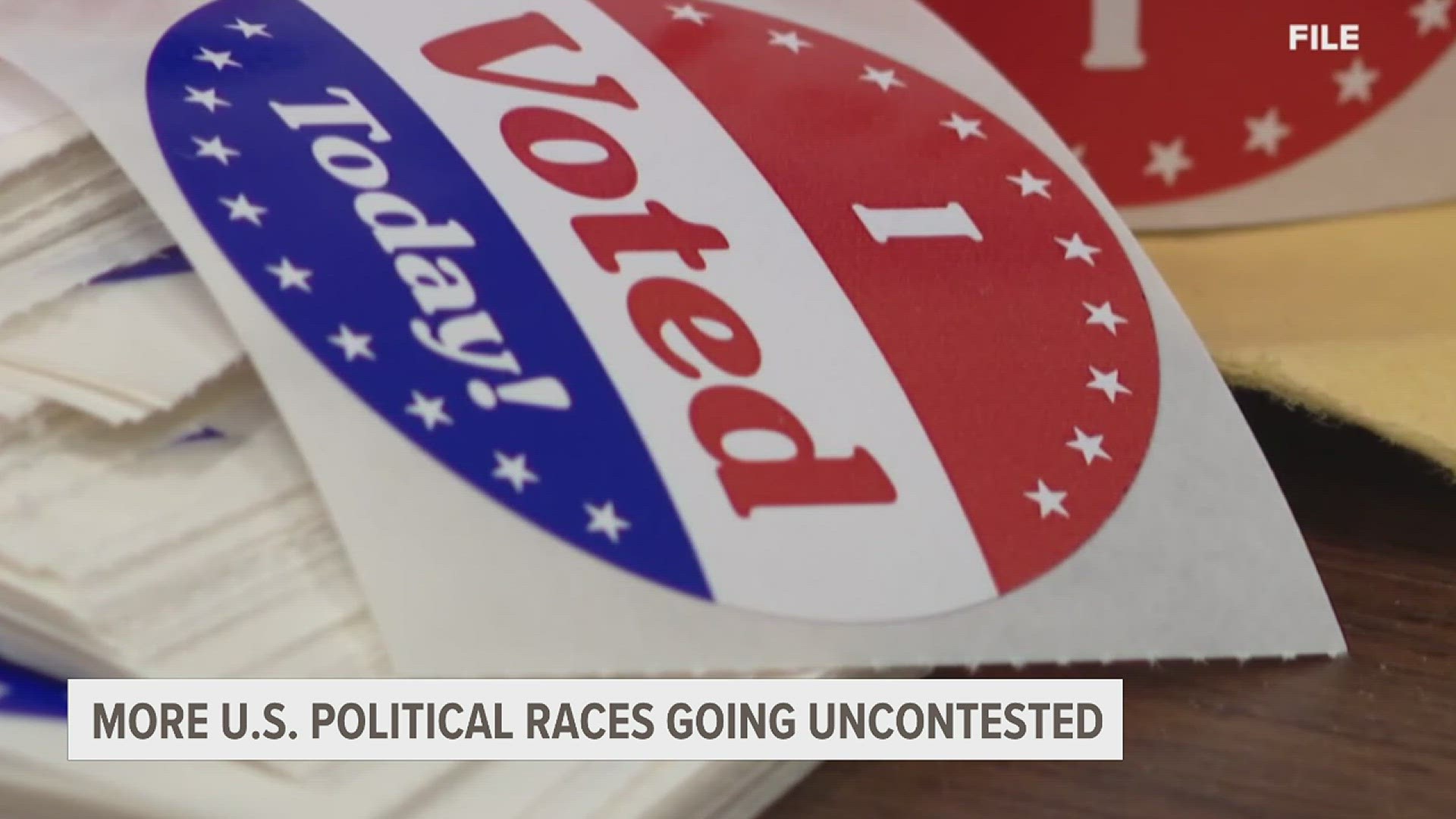ROCK ISLAND, Ill. — While the 2024 Illinois primary election is less than a week away, more races across the country are going uncontested.
According to the non-partisan research group The Cook Political Report, this year's U.S. House race has only 22 seats it considers to be a 'toss-up' that could go to Republicans or Democrats. That is out of 435 seats, a ratio that Augustana College professor Paul Baumgardner says has been widening — including at home in Illinois.
"Just under 90% of the statewide offices are going to see races that are not competitive," Baumgardner said.
Baumgardner explained that both parties continue to use techniques that limit competition.
"During the period of redistricting, the majority party is redrawing lines, redrawing district lines in a way that's advantaging their own party," he said.
For example, a contested race News 8 is following next week is U.S. House District 17, which is currently held by Democrat Eric Sorensen. Candidates Joe McGraw and Scott Crowl are competing for the Republican primary nomination.
The district is stretched across multiple urban areas, including not only the Illinois-side Quad Cities and Rockford, but also areas down south like Galesburg, Peoria, and even as far as Bloomington-Normal. Baumgardner said this isn't even the most extreme example, as the district covers several areas that are more rural. "If you're a Republican in a deep red state, if you're a Democrat in a deep blue state, you like the fact that your candidates don't have to run competitive races," he said.


Baumgardner also said that hyper-partisanship has also made things complicated. "As we see more extreme positions come to dominate within the different parties, it's less likely that we're going to see lots of people actually participate in primaries," he explained.
Baumgardner said it's up to political parties to distribute funding across more candidates and give them a chance in primary elections. "Maybe we have a larger field, a larger field that includes more viewpoints, and the campaigns are funded adequately so they can actually run viable campaigns," he said.
The Illinois primary election is on Tuesday, Mar. 18. Our full guide on the election is available here.

